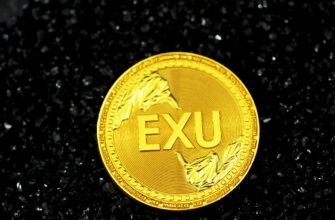- Introduction: Navigating NFT Taxation Down Under
- Understanding NFT Taxation in Australia
- Step-by-Step Guide to Reporting NFT Profits
- Essential Record Keeping for NFT Investors
- Common NFT Tax Reporting Mistakes to Avoid
- NFT Tax FAQ: Your Questions Answered
- 1. Do I pay tax if I sell an NFT at a loss?
- 2. How are NFT trades between cryptocurrencies taxed?
- 3. Are NFT creators taxed differently?
- 4. What if I bought NFTs with overseas platforms?
- 5. Can I deduct NFT investment expenses?
- 6. How does the ATO track unreported NFT profits?
- Conclusion: Stay Compliant, Avoid Penalties
Introduction: Navigating NFT Taxation Down Under
As Non-Fungible Tokens (NFTs) explode in popularity, Australian investors face crucial tax obligations when selling digital assets for profit. The Australian Taxation Office (ATO) treats NFTs as capital assets, meaning profits from their sale are subject to Capital Gains Tax (CGT). Failure to properly report NFT earnings can lead to penalties, interest charges, or audits. This guide breaks down exactly how to calculate, declare, and report NFT profits correctly to stay compliant with Australian tax laws.
Understanding NFT Taxation in Australia
The ATO classifies NFTs as CGT assets, similar to shares or property. You incur a taxable event when you:
- Sell an NFT for AUD or cryptocurrency
- Trade one NFT for another
- Gift an NFT (except to spouses)
- Use an NFT in business operations
Your profit (capital gain) is calculated as: Sale Price – Cost Base. The cost base includes purchase price, gas fees, minting costs, and professional advisory fees. If held over 12 months, you may qualify for a 50% CGT discount on profits.
Step-by-Step Guide to Reporting NFT Profits
- Calculate Your Capital Gain: Determine profit by subtracting your total cost base from the sale price (converted to AUD at transaction time).
- Apply CGT Discount (If Eligible): Halve the gain if you held the NFT for over 12 months before selling.
- Log Transactions in Tax Software: Use myTax or commercial software like H&R Block. Select ‘Capital gains’ under ‘Investment income’.
- Complete the Capital Gains Schedule: Report each NFT disposal separately or as a summary if under $10,000 total gains.
- Submit with Your Tax Return: File by October 31st if self-lodging. Include all crypto/NFT platforms used.
Essential Record Keeping for NFT Investors
Maintain these records for 5 years after disposal:
- Dated transaction receipts (purchase/sale)
- Wallet addresses and blockchain IDs
- Exchange rate screenshots at transaction time (AUD conversion)
- Gas fee documentation
- Minting cost records
- Professional service invoices (e.g., tax advice)
Use portfolio trackers like Koinly or CoinTracker to automate records. The ATO receives data from major exchanges via the TCRS (Taxpayer Confidentiality and Secrecy) framework.
Common NFT Tax Reporting Mistakes to Avoid
- Ignoring Small Transactions: All disposals must be reported regardless of profit size.
- Forgetting Cost Components: Omitting gas fees or minting costs inflates taxable gains.
- Currency Conversion Errors: Using yearly average AUD rates instead of actual transaction-time rates.
- Mixing Personal and Business NFTs: Business-related NFTs may incur GST and ordinary income tax.
- Assuming Losses Offset Automatically: Capital losses must be formally claimed to offset gains.
NFT Tax FAQ: Your Questions Answered
1. Do I pay tax if I sell an NFT at a loss?
Yes, you must still report the disposal. Capital losses can offset current/future capital gains but can’t reduce ordinary income.
2. How are NFT trades between cryptocurrencies taxed?
Trading NFTs for crypto (e.g., ETH) is a CGT event. You must calculate AUD value of both assets at trade time to determine gain/loss.
3. Are NFT creators taxed differently?
Yes. If you mint and sell NFTs as a business, profits are treated as ordinary income (not CGT) and may require GST registration.
4. What if I bought NFTs with overseas platforms?
Australian residents must declare global NFT profits. Convert foreign currencies to AUD using the exchange rate at transaction time.
5. Can I deduct NFT investment expenses?
Only costs directly related to acquiring/disposing of NFTs (e.g., gas fees) form part of your cost base. General education or software subscriptions aren’t deductible under CGT.
6. How does the ATO track unreported NFT profits?
Through data matching with crypto exchanges, blockchain analysis, and bank transaction monitoring. Penalties for non-disclosure can reach 75% of unpaid tax.
Conclusion: Stay Compliant, Avoid Penalties
Reporting NFT profits accurately requires meticulous record-keeping and understanding of CGT principles. Consult a crypto-savvy tax agent if dealing with complex transactions or business activities. By declaring gains correctly, you avoid ATO scrutiny while legally maximizing eligible discounts. Always refer to ATO’s Guide to Cryptocurrencies for the latest updates.








